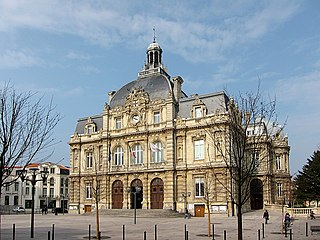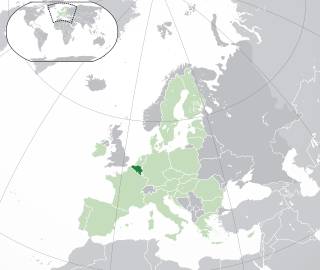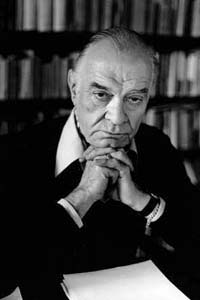Mark Dubrulle (Ghent, Belgium, 26 January 1943) is a Belgian consultant and environmentalist.
Mark Dubrulle (Ghent, Belgium, 26 January 1943) is a Belgian consultant and environmentalist.
Dubrulle was trained at the Naval School in Ostend (B) and spent two years at sea. His academic background is in psychology and sociology at the Social Academy of his hometown Ghent.
He has been involved in environmental activism and environmental protection for more than 40 years. His professional experience includes environmental management, communication strategies and European affairs. He is an ex-officio Member of the Club of Rome, was President of the Club of Rome EU Chapter (Brussels) until 2019, and is now President Emeritus. He has been a Committee member of ECOROPA, a green think tank, since 1977. He was President of GreenFacts-Communicating Scientific Facts on Health and Environment from 2005 to 2009. He was co-founder and Chairman of the Europe of Cultures Forum from 2004 to 2010.
A founding member of the Belgian confederation of nature conservation and environmental organisations, Mark Dubrulle was National Secretary of the Bond Beter Leefmilieu / Inter-environnement from 1970 to 1980, an activist group which he co-founded, together with Michel Didisheim and half a dozen friends. He was a co-founder and, from 1980 to 1982, the first Secretary of the Flemish green party AGALEV (presently Groen!).
Appointed Managing Director of Hill and Knowlton International Belgium in 1980, he left this leading PR/PA agency to start his own consultancy in 1986. Until 1998 he was managing director of EMSA Europe S.A., Environmental Management Strategies and Analysis. He presently is managing director of Dubrulle s.c.r.l., a cooperative services consultancy specialized in environmental affairs and sustainable development.
He lectured at several universities in Belgium, France, Italy and the U.K. He was a Belgian delegate at the first UN Conference on the Human Environment in Stockholm (1972), is a Past President of the European Society for Environment and Development (ESED), stood on the Policy Committee of the International Council for Oil and the Environment (ICOE) in Edinburgh.
He has been active in many federalist movements and think tanks: Beweging voor de Verenigde Staten van Europa, Centre d’études pour les communes et les provinces/ Studiecentrum voor steden en gemeenten, Coudenberg group, Front voor Unionistisch Federalisme/Front pour le fédéralisme d’Union, and B Plus.
In the seventies and eighties he worked closely with the Swiss philosopher Denis de Rougemont as a counsellor of the Centre Européen de la Culture.
He is a member of the Dutch/Flemish Comité voor Buitenlands Cultureel Beleid and president of the section County of Namur of the cultural organisation Orde van den Prince.
Mark Dubrulle is the author of numerous articles on environmental issues, communication, Europe and cultural identities. Also of:
Vooruit is a Flemish social democratic political party in Belgium. The party was known as the Flemish Socialist Party until 21 March 2021, when its current name was adopted.

Groen, founded as Agalev, is a green Flemish political party in Belgium. Its French-speaking equivalent is Ecolo; the two parties maintain close relations with each other.

Tourcoing is a city in northern France on the Belgian border. It is designated municipally as a commune within the department of Nord. Located to the north-northeast of Lille, adjacent to Roubaix, Tourcoing is the chef-lieu of two cantons and the fourth largest city in the French region of Hauts-de-France ranked by population with about 97,000 inhabitants.

The Métropole Européenne de Lille is the métropole, an intercommunal structure, composed by a network of big cities whose major city is the city of Lille. It is located in the Nord department, in the Hauts-de-France region, northern France – bordering both the Flemish and Walloon regions of Belgium. It was created in January 2015, replacing the previous Communauté urbaine de Lille, and covers that part of the Lille metropolitan area that lies in France. Its area is 671.9 km2. Its population was 1,179,050 in 2019, of which 234,475 in Lille proper. The annual budget of the métropole is €1,865 billion (2018).

The Entente Florale Europe is an international horticultural competition established to recognise municipalities and villages in Europe for excellence in horticultural displays. Trophies are presented annually by tourist boards and horticultural societies of European countries. There are three categories:

Lesbian, gay, bisexual, transgender (LGBT) rights in Belgium are seen as some of the most progressive in Europe and the world. In 2021, ILGA-Europe ranked Belgium as second in the European Union for LGBT rights protection, behind Malta.

Denys Louis de Rougemont, known as Denis de Rougemont, was a Swiss writer and cultural theorist who wrote in French. One of the non-conformists of the 1930s, he addressed the perils of totalitarianism from a Christian point of view. After the Second World War, he promoted European federalism.

Georges Vedel was a French public law professor from Auch, France.

Paul Magnette is a Belgian politician for the Socialist Party, the current mayor of Charleroi and former political science professor at the Université libre de Bruxelles (ULB). He was the 13th Minister-President of Wallonia from 2014 to 2017.

Etienne Vermeersch was a Belgian moral philosopher, skeptic, opinion maker and debater. He is one of the founding fathers of the abortion, euthanasia law, and the Law on Patients' Rights in Belgium. Vermeersch became an atheist after five years with the Society of Jesus (Jesuits). Later he became a philosophical materialist. In January 2008, Vermeersch was chosen by hundred prominent Flemings as the most influential intellectual of Flanders. He died in a hospital in Ghent on 18 January 2019 by euthanasia after a long illness.
Michel, Count Didisheim was the private secretary and chief of the Royal household (1962–1986) of Albert, Prince of Liège, later to become king Albert II of Belgium. He was also the CEO and president of the King Baudouin Foundation (1976–2001).

Jean-Pierre, Baron de Bandt is a Belgian lawyer and former President of the Coudenberg group, a Belgian federalist think tank.
Kris Deschouwer is a Belgian political scientist and professor at the Vrije Universiteit Brussel. He was a member of the Coudenberg group, a Belgian federalist think tank. His research is on the consequences of the institutional complexity of Belgium for political actors and for political parties in particular.
Water supply and sanitation in Belgium is provided by a large variety of organizations: Most of the 581 municipalities of Belgium have delegated the responsibility for water supply and sanitation to regional or inter-municipal utilities. There are more than 62 water supply utilities, including 2 regional, 30 inter-municipal and 30 municipal utilities. Another 100 mostly small municipalities provide services directly without having a legally of financially separate entity for water supply. Water is not scarce in Belgium and water supply is generally continuous and of good quality. However, wastewater treatment has long lagged behind and Brussels only achieved full treatment of its wastewater in 2007. In 2004 the European Court of Justice ruled condemning Belgium's failure to comply with the EU wastewater directive, and the ruling has not been fully complied with so far. Wallonia satisfies 55% of the national needs in drinking water while it counts only 37% of the population. Flanders and Brussels are dependent on drinking water from Wallonia, at a level of 40% and 98% respectively.
The Human Rights League was founded in Belgium on 8 May 1901, after the in 1898 established Ligue des Droits de l'Homme in France. The Belgian initiative came from Eugène Monseur, a professor at the Université libre de Bruxelles.

Gabriel Fragnière was a Swiss university professor, philosopher and scientific researcher.

KU Leuven is a Catholic research university in the city of Leuven, Belgium. It conducts teaching, research, and services in computer science, engineering, natural sciences, theology, humanities, medicine, law, canon law, business, and social sciences.

René Tavernier was a Belgian geologist and stratigrapher. He was a professor at the State University of Ghent, a corresponding member of the Royal Flemish Academy of Belgium for Science and the Arts, and one of the founders of the Belgian Society for Soil Science.
Walter Couvreur (1914–1996) was a Belgian philologist and for some ten years a Flemish politician. He studied classical and Oriental languages. He was a professor of Hittite and Tocharian at the University of Ghent.
Antoine Philippe De Schryver (1924–2005) was a Belgian art historian and professor at the University of Ghent, where he lectured on History of Book Illumination. He was specialized in the field of illuminated manuscripts in the Southern Netherlands, 15th century painting, and artists at the Burgundian Court.